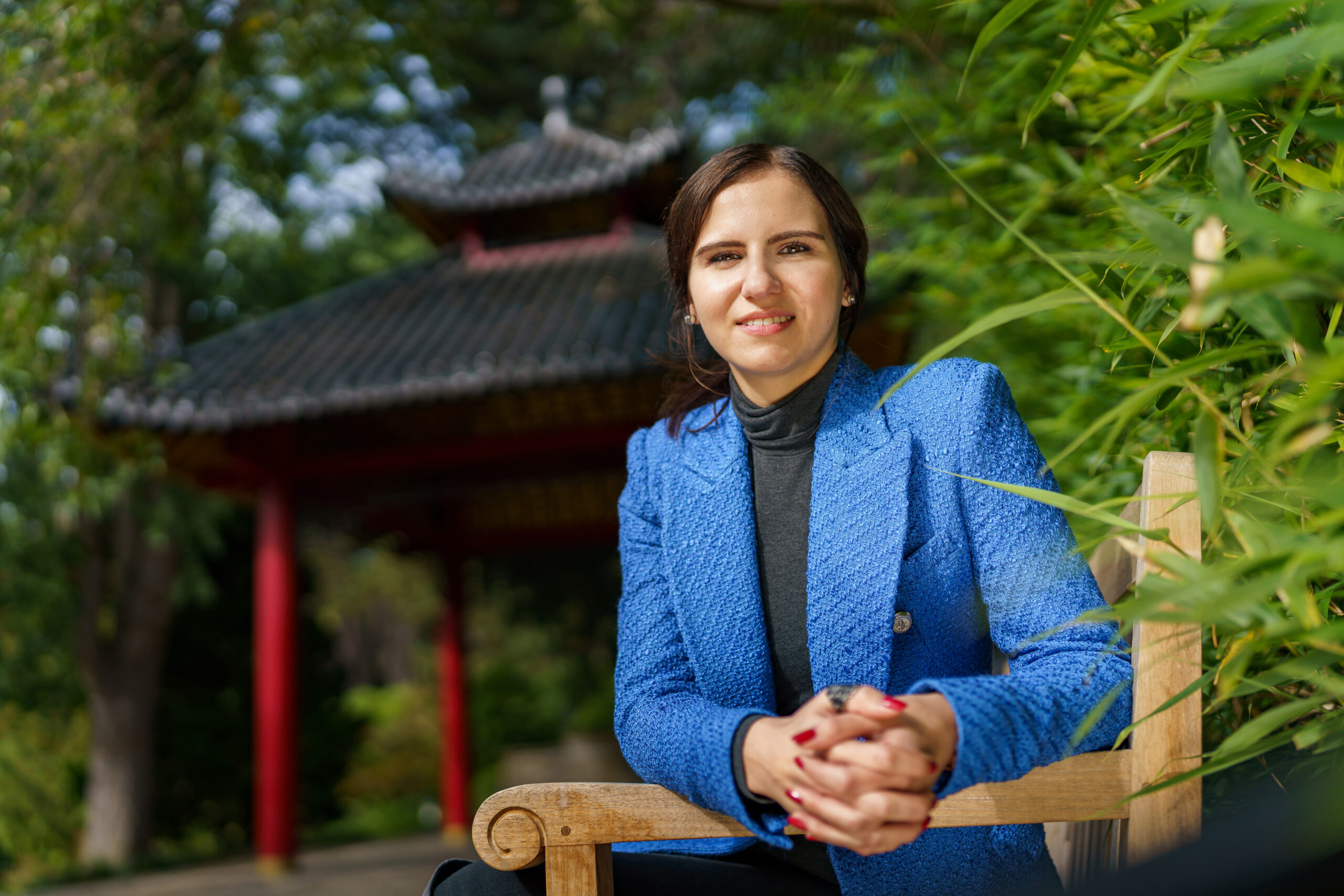Julia Haske is investigating the socio-economic aspects of post-mining at the FZN. In times of raw material shortages and the energy transition, the young economist is focusing primarily on China. Will the world's second largest economy manage the transition to renewable energies? What are the biggest challenges and how will the rest of the world benefit? The research situation is still rather sparse, but the topic is red-hot right now, says Julia Haske in an interview.

Your assessment as an expert: What is China´s position in terms of the energy transition and post-mining?
Julia Haske: That depends on where you look. There are many provinces in China, which are very diverse according to their dependence on coal, for example. There are regions that are already working sustainably. On the other hand, there are provinces whose economy is heavily dependent on mining. The coal secures many jobs, taxes, pensions and has a positive influence on economic growth throughout the country - one of China's primary goals. Therefore, the gap is big. In the future, it will be difficult to satisfy the many different needs of the people in the regions. There are interesting pilot projects, e.g. the subsequent use of old mines for "underground cities" is being considered in order to counteract the lack of space in the cities. Of course, the idea is debatable, but it is quite innovative and involves addressing post-mining. China is also a leader in satellite technology. But we do not know, how this knowledge is actually used to monitor the legacies of mining.

What are the biggest challenges on the way to climate neutrality?
Julia Haske: Hard coal is still the simplest and safest way to ensure the energy supply. China aims to be carbon neutral by 2060. However, this also means that the highest peak in CO2 emissions has to happen until 2030. For this reason, they currently build new coal-fired power plants, which are designed to run for 40 years. However, these power plants comply with the latest environmental standards and replace outdated, inefficient plants. At the same time, China is already one of the market leaders in renewable energies. Around 90 % of the energy concentrates used for solar panels, silicon batteries or in wind power are produced here. So far, climate protection has not been a priority in the own country. However, the latest 5-year plan clearly shows that China wants to become more "green" and has recognized the urgency.

More "green" - what does that mean in this case?
Julia Haske: That is the next big challenge. After all, the renewable alternatives also produce CO2 and are not yet recyclable for hundred percent. Rotor blades of wind turbines end on hazardous waste after only 20 years in use. Air pollution or toxic sewage endanger certain areas and the population for the power supply in another part of the world. This is not sustainability, just shifting the climate issue from A to B under the guise of a green future. The whole setting is far from optimal – and we have not even talked about the labor market and the long-term challenges that structural change in Chinese coalfields would entail. Nevertheless, it is an important step by saying: We are reorienting ourselves, we are researching and we want the transformation.
What are the effects on the rest of the world if China becomes climate neutral?
Julia Haske: When big, influential players like China pay more attention to sustainability and climate protection, this has a positive impact on all players in the world. Directly neighboring countries often orientate on the dominant China. Depending on the dependencies in import and export, a reorientation in other countries is also necessary to keep up with the times. In addition, China is an important trading partner for rare earths and has a major influence on progress in E-mobility in Europe or the USA. This and many other aspects contribute making processes globally more sustainable. In general, a lot of research and development is still necessary for a successful energy transition. Here, too, a "green" China can become an international promoter of innovation.
Vita – Julia Haske
Julia Haske studied Economics and Politics of East Asia (specializing in Economics and China) at Ruhr University Bochum and subsequently completed a Master's degree in International Political Economy of East Asia. In her final theses, the economist has already looked at the Chinese coal industry from a future perspective. Her question: “What are the consequences of the latest developments towards more renewable energies and less hard coal in terms of social impact, political and economic structures and the aspect of post-mining?” She speaks several languages, including Chinese and Russian, and intends to shed more light on energy policy and structural change in China in her planned doctoral thesis.
Contact

Julia Haske, M.A.
Technische Hochschule Georg Agricola, University
Herner Street 45
44787 Bochum
Building 2, room 202
Phone 0234 968 4147
Mail julia.haske@thga.de


